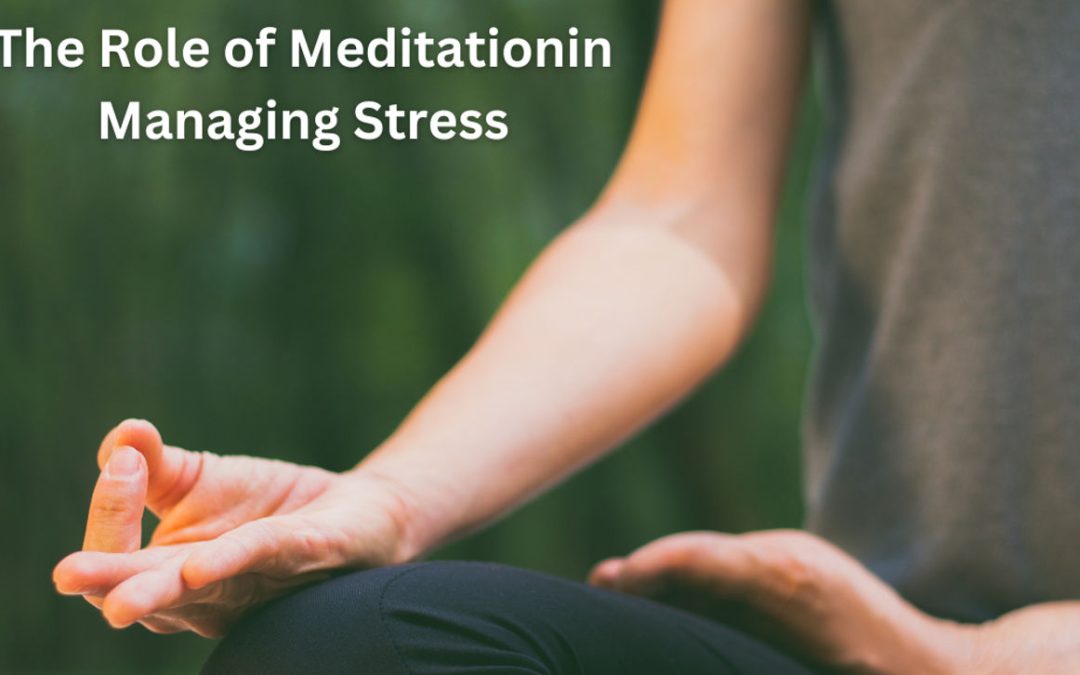Mindfulness for Anxiety and Stress: Proven Techniques
“Do you think your life is being overtaken by anxiety? What if you already had the key to achieving peace? Allow mindfulness to lead you to a more composed and peaceful version of yourself.”
Introduction
When the sun rises, it feels like the weight of the world is already on your shoulders. By the time you register what’s happening, panic creeps in as your mind races through the long list of family tasks, bills, and deadlines. Rather, it always feels as though you are well outside your comfort zone. Your body begins to tense up, your heart races, and worry sinks in. You’re not the only one who feels this way.
Anxiety
Among many of us, anxiety is a hidden but continuous companion. The Anxiety and Depression Association of America claims that approximately 40 million adults suffer from anxiety in the United States alone, yet a significant number of these individuals remain untreated. Stress has also become an integral part of life. We now find ourselves in an endless loop of anxiety. From marital strain to office work pressure, or even the unrealistic expectation of “doing it all,” stress and anxiety have made us feel helpless and desperate. However, consider this: what if there is a way out of this restraining reality?
What if, instead of feeling like your mind is racing all the time, you could feel at ease, balanced, and content no matter what life threw at you? Although it might seem too good to be true, mindfulness provides a straightforward yet effective remedy.
Studies show that mindfulness is beneficial to wellbeing and can assist in overcoming anxiety, removing stress, and restoring one’s way of living. There is so much more about it that I will talk about in my blog as well as how it can change the way your life is right now.
Accepting the Issue: Stress and Anxiety Are Real
Let’s take a moment to think. We’ve been there, so we understand what you’re going through. The heavy, ongoing sensation in your chest. The idea that there’s always more to do, no of how hard you try. The times when it seems like there is too much to bear. Taking a deep breath feels like a mission in itself. No wonder, letting go is a hard task to accomplish. But it doesn’t have to be like this and the good news is, you can change the way these entities are affecting you. The process is nicely governed by mindfulness. Long term, it’s more beneficial than to fix anxiety in the short term. It will take time, but the outcome would be worth the wait. Remember, physical and mental exhaustion both stem from stress and anxiety, tightening muscles and increased heart rates are mere effects of deeper issues.
Mindfulness: What is it? And Why Is it Important?
Being totally present in the moment without judging it is what mindfulness is all about. It is paying attention to, while accepting your ideas, feelings, and sensations that lie within your body. Sounds easy, doesn’t it? In reality, though, that’s exactly what we find hard to do when we are under stress. We become preoccupied with worrying about the future, revisiting past errors, or visualizing the worst-case situation. Being present and breaking that pattern are key components of mindfulness.
The secret is that you don’t have to let anxiety take over your life; mindfulness for anxiety helps you put yourself in a position where you can decide how to react. That’s where the power lies, which is why it works so well. It’s like taking a step back when whatever feels tense and saying, “I’m here. I’m okay. I am capable of managing this.” It’s not about getting rid of stress, but rather learning how to respond to it in a healthier, more constructive way.
The Science: The Effectiveness of Mindfulness

Let’s talk about the science for a second. I understand that you may be doubtful. The idea seems too easy to work. However, research indicates that practicing mindfulness is more than just a feel-good activity. In fact, it rewires your brain to better manage stress.
According to Neuroimaginary research published in Psychiatry Research: The brain region responsible for processing fear and anxiety, the amygdala, can shrink as a result of mindfulness exercises. Additionally, it enhances gray matter in regions linked to self-awareness and emotional control. This implies that over time, mindfulness training can really increase your ability to withstand stress. Therefore, it’s about physically teaching your brain to react differently to stress rather than just “feeling better.” This is precisely why practicing mindfulness breathing techniques can turn into one of your most effective anxiety-reduction strategies.
Why Stress and Anxiety Are Affecting You
The modern world can be a very stressful place to live. The burden can seem to be increasing all the time due to demanding employment and family responsibilities. Stress and anxiety frequently accompany one another all the time, causing a physical and emotional burden that is difficult to recover from.
Even after trying everything from counseling to medicine, you can still be experiencing anxiety or tension. The fact is that stress and anxiety are impacted by our internal responses to external circumstances as much as by those forces themselves. These feelings can take control of us instead of the other way around if we don’t have the proper skills.
Anxiety-Related Mindfulness Activities
End the Overthinking Cycle
Anxiety is increased by overthinking. Body scans and breathing exercises are examples of mindfulness activities that help you focus on the here and now and interrupt the pattern of worrying. You can avoid losing yourself in anxiousness by monitoring your thoughts objectively.
Using Mindful Breathing to Reduce Stress
A straightforward yet effective method for lowering tension and anxiety is mindful breathing. You can lower your heart rate and calm your nervous system by concentrating on deep, deliberate breathing, which triggers the body’s relaxation response. Try this: Take a four-count breath, hold it for seven, and then release it for eight. This practice offers instant relief and can be performed anywhere.
Stress-Reduction Through Mindfulness Meditation
Studies have shown that mindfulness meditation reduces stress because it helps you focus your mind on one thought and relax. If you concentrate on your breathing or a peaceful picture, you can detach yourself from the stressors and deal with problems clearly. It enhances emotional control and lowers levels of stress hormones according to research studies.
Practices for Mindful Breathing
Breathe mindfully first. Take a moment to concentrate on your breathing whenever you sense your tension or anxiety levels increasing. Take a deep breath, hold it for a few seconds, and then release it gradually. You may center yourself and relax your thoughts by doing this easy exercise.
Meditation Using Body Scan
As a mindfulness exercise, a body scan includes mentally going over your entire body, from head to toe, and focusing on any tense or uncomfortable spots. This method encourages relaxation and aids in the release of bodily stress. To help your body settle into a relaxed condition, try it before bed.
Walking with Mindfulness
Meditation can be achieved through walking. Pay attention to your breathing pattern and each step you take when you go on a stroll. Walking while present can help you relax and feel less anxious.
Practice Gratitude
Turn your attention from worry to thankfulness. Write down three things for which you are grateful before you turn in for the night. This technique decreases the mental space that anxiety takes up by assisting you in concentrating on the good.
The Therapeutic Effects of Mindfulness in Managing Anxiety

You are no longer required to live with worry and anxiety. The mental and physical effects of anxiety can be considerably decreased by engaging in mindfulness meditation, mindfulness breathing exercises, or mindfulness approaches for stress alleviation.
However, we recognize that practicing mindfulness alone can be difficult, particularly if you’re under a lot of stress. We can help with that.
Our specialty at MIND CANVAS is offering individualized mindfulness coaching for successful anxiety control. We are here to support you as you use mindfulness to enhance your mental health because we recognize how difficult it can be to live with anxiety.
Conclusion
You may develop emotional resilience, relax your mind, and simply lower anxiety by engaging in mindfulness practices. Although these mindfulness stress-reduction and anxiety-reduction activities don’t call for significant life adjustments, they can significantly improve your general wellbeing.
We at Mind Canvas are dedicated to using the power of mindfulness to assist you in managing your stress and anxiety. Our knowledgeable staff is prepared to lead you through customized mindfulness exercises based on your requirements.

